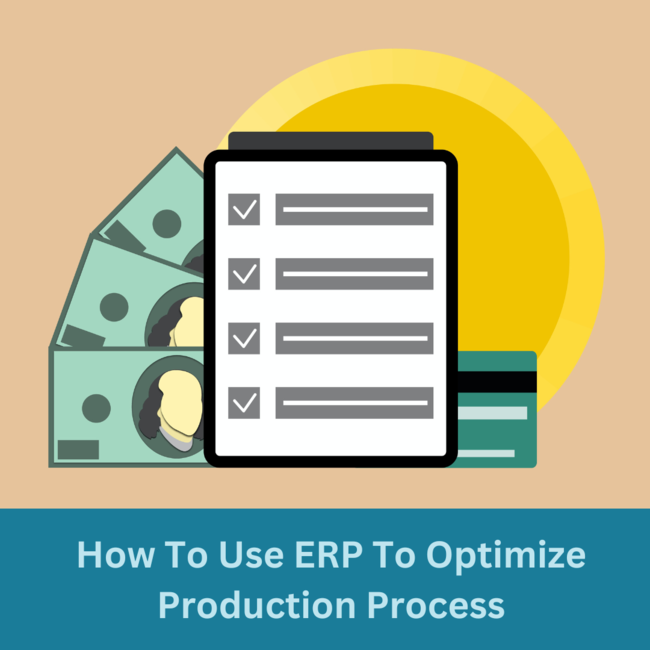4 Tips To Optimize Production Processes With ERP Software

When it comes to manufacturing, the goal of any business is to produce good-quality products fast and efficiently. While there are a lot of ways to streamline business operations, implementing ERP software is the key factor in helping businesses to succeed.
This blog shares tips on how to use ERP software to optimize your production processes.
When did the manufacturing sector begin implementing ERP systems ?
ERP systems have been around for about 60 years. Manufacturing resource planning systems that emerged in the 80s were among the first ERP systems. By the 90s, ERP had evolved into a system that resembled a modern ERP unit. Today, ERP is a powerful tool that business owners can use to optimize their processes and grow their businesses.
How to use ERP to optimize your production processes
1. Automate repetitive tasks
Many of the processes involved in goods manufacturing, such as inventory management or scheduling, can be automated these days. Automation can come as a tool itself, like an inventory management system, or it can be a part of a broader system like ERP. ERP can help you automate processes like stock level tracking, accounting, and purchase orders. Reassess your business processes, look at what tasks can benefit from automation, and start with implementing an ERP system into your manufacturing routine.
2. Gain business insights
The majority of modern ERP software has a built-in business analytics tool. Analytics tools allow you to spot and immediately tackle various bottlenecks in the production process, such as insufficient machinery capacity to meet the demand. You can also utilize this tool to analyze specific production trends or view what products bring more revenue. Analytics tool within ERP software allows you to gain insights into your business performance and use that information to make better decisions.
3. Consolidate your business-related data
One of the most important aspects that makes a business successful is access to centralized business data. Spreadsheets used to be a viable business management solution to store and manage all business data in the past. However, as businesses grow, spreadsheets can no longer keep up with the growing amount of data, and it’s becoming more difficult for managers to make sense of the information. ERP is one of the most effective solutions to consolidate all your business information into a single system. By having access to the most up-to-date information that is updated in real-time, your employees will no longer have to spend hours sorting through numerous documents to make sense of the information.
4. Use ERP to maintain your equipment
Manufacturing equipment is the heart of any production facility, and when it breaks down, the entire manufacturing workflow is impacted. Therefore, businesses need to conduct regular equipment checks to ensure stable and reliable equipment functioning and continuity of the working cycle. Thankfully, an ERP with a built-in maintenance management system can schedule maintenance routines and help you prevent costly repairs.
Manufacturing continues to undergo a major digital transformation. In order to compete in this new digital era, manufacturing businesses must embrace new technologies. ERP is one of the best solutions to transform your business and maintain a competitive edge.
Vestra Inet is a custom ERP solutions provider that has been serving industrial and commercial clients for over a decade. We pride ourselves in offering custom business software solutions that allow our clients to grow and scale their businesses whenever they want. Schedule a consultation with our experts today to learn how your business can benefit from our custom business management solutions.
